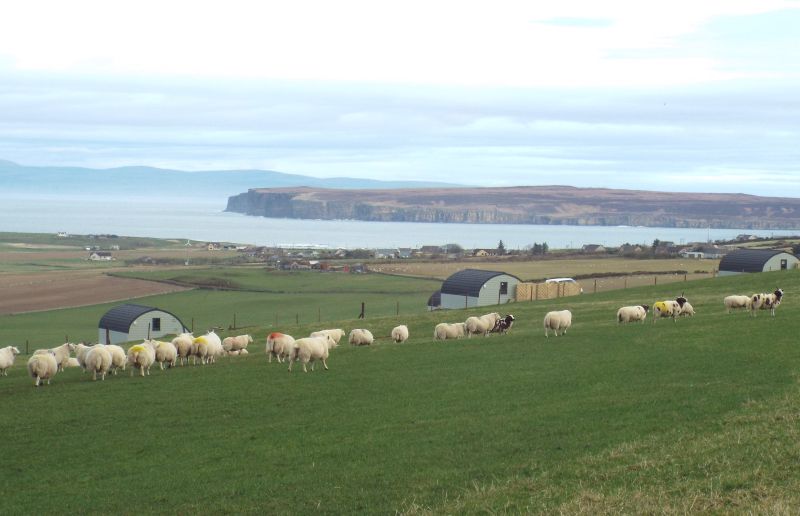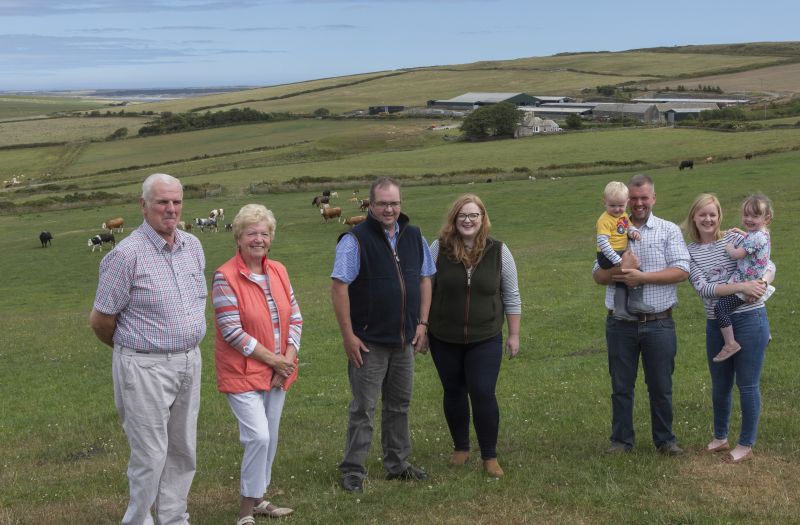
A Highland farm has dramatically improved the sustainability and biodiversity of the local area by planting nearly 24 kilometres of hedgerows.
Sibmister Farm is a 700ha all-grass enterprise near Thurso running commercial livestock, including 1,600 ewes, 400 suckler cows.
Nearly 40% of the farm – 275ha - is under environmental management and has created 24km of hedgerows from three rounds of Agri Environment Climate Scheme (AECS) funding in 2015, 2017 and 2019.
Farmer Stephen Sutherland explained that, over the course of the last 20 years, a lot of work had gone into improving the biodiversity through various land management practices.
“Over the years we’ve put in a lot of time and effort into improving the biodiversity, and it has been very rewarding," he said.
"Not only does it contribute to making the farm more efficient and sustainable by providing new habitats, but the hedges provide good shelter for the livestock when weather is harsh.”
Beside hedgerows, the Sutherlands have invested in 3.88ha of water margins, 127ha of habitat mosaics, 18ha of wader-grazed grassland for wildlife and 3ha of created species rich grasslands.
The farm has also created 1.5ha wild bird seed, 2.5ha forage brassicas, over 100ha of mown grassland for wildlife and 3ha of species rich grassland.
Willie Budge, Senior Agricultural Consultant for SAC Consulting, part of Scotland’s Rural College (SRUC) assisted the Sutherland family with the application and planning process for each round.
He said that Sibmister Farm was a great example of schemes complementing existing enterprises.

“It’s important for schemes to integrate into established farming systems, as it does at Sibmister, by incorporating activities like grazing planning into what they’re already doing with the farm.”
The process began with an assessment of the whole farm detailing what is on the ground at present - such as hedgerows, water courses, species rich grassland - which informed the creation of a Farm Environment Map.
“Following that we had a discussion of the available farm management options, the potential to manage existing habitats and to create and manage new habitats," Mr Budge said.
“Ultimately, we wanted to assess how the schemes would impact on the current farming system and to identify the possible tweaks to the current system to accommodate these.
"Due to the competitive nature of the scheme, how to best maximise the number of application points is important."
Although there will not be a normal AECS round this year, with one-year extensions available for those with contracts expiring in 2020, Mr Budge encouraged farmers to seek advice on what opportunities were available.
“I would encourage farmers to find out what schemes are out there and assess how they can fit within your existing business," he explained.
"Applications can be made by the farmer, or they can employ an agent, like SAC Consulting, to draw it up and submit it online.”
